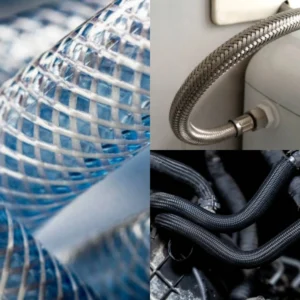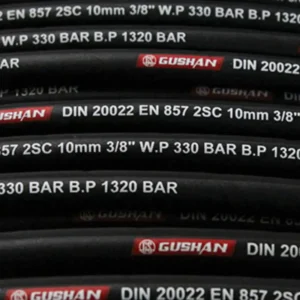When we discuss maximizing the performance of a pressure washer, the hose is often an afterthought. However, hose material is one of the most critical factors affecting a tool’s performance, durability, and safety. High-quality hoses can withstand intense pressure and harsh conditions, while inferior hoses can easily kink, burst, and even pose safety hazards.
We’ll explore the most common pressure washer hose materials and their unique properties to help you determine which is best for your cleaning needs.
Understanding the Key Role of a Pressure Washer Hose
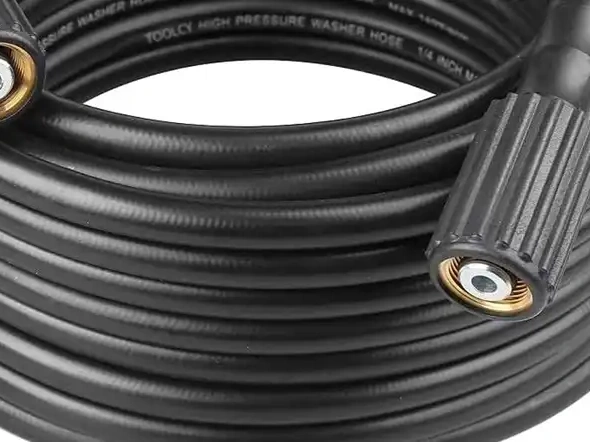
Before we dive into the different materials, it’s important to appreciate what the hose actually does. It’s not just a simple pipe; it’s the vital link between your pressure washer pump and the spray wand. This hose has to handle extreme water pressure—often hundreds or thousands of PSI—as well as the vibration from the machine and the wear and tear of being dragged across various surfaces. Choosing the right pressure washer hose material ensures a longer lifespan for your equipment and a more efficient, safer cleaning experience every time we use it.
What Are Pressure Washer Hoses Made Of?
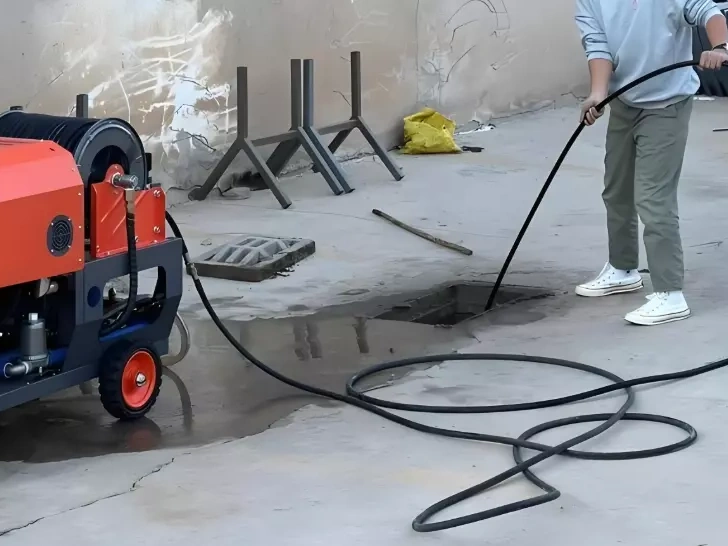
PVC and Plastic
For many entry-level or residential pressure washers, the hose is made from PVC (polyvinyl chloride) or a similar plastic compound. We’ve found that these hoses are lightweight and easy to handle, which makes them convenient for occasional, light-duty jobs like cleaning patio furniture or a small deck. However, they have some significant drawbacks. PVC hoses are prone to kinking, which can disrupt the water flow and even cause damage to your pressure washer’s pump. They can also become stiff in cold weather and are generally not as durable as other options.
Rubber: The Professional’s Choice
When we move into the heavy-duty and professional-grade pressure washers, rubber hoses are the go-to choice. Rubber is incredibly durable and resistant to abrasion, making it ideal for tough job sites where the hose might be dragged over concrete, asphalt, or gravel. We appreciate that rubber hoses are far more flexible and less likely to kink than PVC hoses, even in cold temperatures. The downside is that they can be quite heavy and often leave black scuff marks on surfaces. This is an important consideration for us when working on painted or light-colored surfaces.
Polyurethane: The Best of Both Worlds?
In our opinion, polyurethane is a fantastic middle-ground choice for pressure washer hose material, especially for those who need a balance of performance and ease of use. These hoses are made with an inner core of PVC and an outer layer of polyurethane, often reinforced with braided steel or fabric. The result is a hose that is significantly more durable and kink-resistant than a basic PVC hose, but much lighter and easier to handle than a heavy rubber hose. They are also non-marking, which is a huge bonus when we’re working on delicate surfaces. The main trade-off is often a higher initial cost compared to PVC.
Braided Steel: The Ultimate in Reinforcement
For the most demanding applications, like commercial and industrial cleaning, we often see hoses with a braided steel reinforcement. This isn’t the primary material, but rather an integral part of the hose’s construction, designed to prevent the hose from expanding and bursting under extreme pressure. A braided steel hose is usually covered in a protective layer of rubber or polyurethane. We’ve found that this type of hose offers the highest level of pressure resistance and durability, making it an excellent choice for machines with very high PSI ratings. However, it’s also the heaviest and most expensive option on the market.
How do we decide which is the right pressure washer hose material for a specific job? We always start by considering the type of work we’ll be doing.
Is Brass or Stainless Steel Better for Pressure Washer Fittings?
Brass fittings are a common and affordable choice. They are strong and corrosion-resistant, making them ideal for residential and medium-pressure applications. However, they tarnish easily and are not as strong as stainless steel. They are also not suitable for use with certain chemicals, which may be a factor for specialized cleaning tasks.
Stainless steel is preferred for commercial or heavy-duty use. It is more durable, can withstand higher pressures, and is highly resistant to rust and corrosion, even when exposed to harsh chemicals. While stainless steel fittings are more expensive, their durability and reliability make them a worthwhile investment for frequent or professional users.
How to Choose the Right Pressure Washer Hose for Your Needs
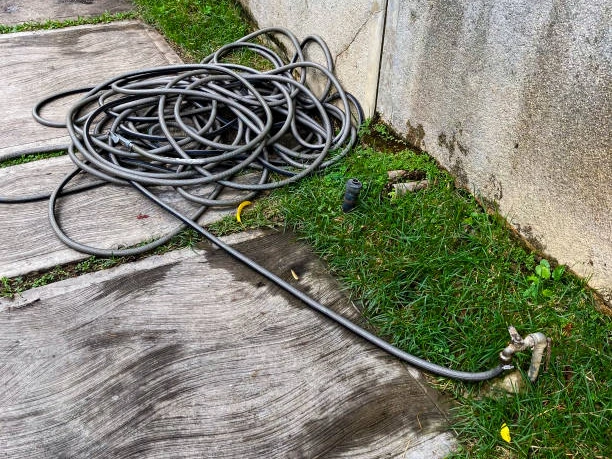
- For residential cleaning: If you’re a homeowner who only uses your pressure washer a few times a year for basic tasks, a PVC hose is probably sufficient and budget-friendly.
- For regular, all-purpose use: If you use your pressure washer frequently for a variety of tasks, we recommend investing in a polyurethane hose. Its balance of durability, flexibility, and light weight makes it an ideal all-around choice.
- For heavy-duty and professional jobs: If you’re a professional cleaner or tackle tough industrial tasks, a rubber hose is the clear winner for its superior durability and performance. When dealing with extreme pressure, a braided steel-reinforced hose is the safest and most reliable option.
Additional Factors to Consider Beyond Material
Choosing the right pressure washer hose material is just the first step. We also need to think about other factors that affect the hose’s performance and lifespan.
- Hose Length: A longer hose provides more reach, but it can also lead to a slight drop in pressure and can be more cumbersome to store and manage. We always choose a length that is appropriate for the job, balancing reach with practicality.
- Pressure Rating: Make sure your hose’s PSI rating is equal to or higher than your pressure washer’s maximum output. Using an underrated hose is a serious safety risk. We never compromise on this.
- Hose Diameter: The diameter of the hose (typically 1/4″, 5/16″, or 3/8″) affects the water flow (GPM). A larger diameter hose allows for a higher flow rate, which is often needed for larger, professional machines.
- Hose Connections: We always check that the fittings on the hose match the connections on your pressure washer and spray wand. A loose or incompatible connection can lead to leaks and dangerous failures.
Conclusion
Choosing the right pressure washer hose material is crucial for performance, safety, and cost-effectiveness. By considering factors like pressure rating, temperature, and chemical exposure, you can select a hose that maximizes efficiency and durability.
Ready to upgrade your pressure washer? Explore our recommended materials to take your cleaning experience to the next level!


